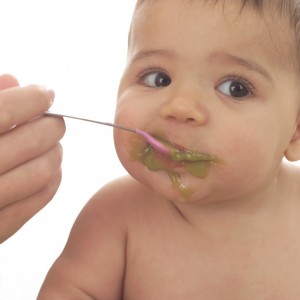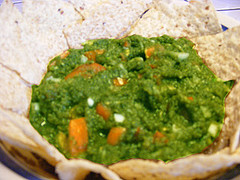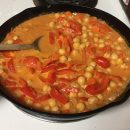 While I love to purchase organic baby food for my children it can be quite expensive.
While I love to purchase organic baby food for my children it can be quite expensive.
The jars are two to three times as expensive as the regular baby food. Ouch! This caused me to do some research on what foods baby can eat at different ages and the best way to prepare the foods.
Now I love making my own baby food and wanted to share with new and experienced mothers who would love to make some delicious homemade baby food for their little ones. Read on to learn some great tips.
What You Need
• Breast Milk Storage Bags
• Spring Water
• Small Pans With Lids
• Steamer Inserts for Pans
• Blender or Food Processor
• Knives
• Cutting Board
• Peeler
• Foods Based on Baby’s Age
Food Options for Different Ages
You can make the types of fruits and vegetables listed below for babies six months of age and older. Make sure when you make the food for the babies that you feed them the food on its own a few times without mixing it with other foods. This is to ensure the child does not have any allergies to the food and you can see how they take to it before adding another food. Once the child has eaten the foods separate then it is fun to get mixing and make you own great concoctions.
Six to Eight Months
Vegetables: Acorn Squash, Butternut Squash, Carrots, Green Beans, Peas, Sweet Potatoes, Yellow Squash & Zucchini
Fruits: Apples, Apricots, Avocados, Bananas, Mangos, Nectarines, Peaches, Pears, Plums, Prunes & Pumpkin
After eight months of age babies can have fruit in its raw form and mashed up properly so you do not need to prepare it to freeze.
Eight to Ten Months
Vegetables: Asparagus, Broccoli, Cauliflower, Eggplant, Onions, Parsnips, Peppers, Potatoes, Leeks & Mushrooms
Fruits: Blueberries, Cantaloupe, Cherries, Cranberries, Dates, Figs, Kiwi & Papaya
Ten to Twelve Months
Vegetables: Artichokes, Beets, Corn, Cucumber, Spinach & Tomatoes
Fruits: Berries, Cherries & Citrus Fruits
Preparing food
First you want to peel the food and take out the seeds so that it you can slice it and cut it into small pieces.
Next you place about an inch of spring water in the bottom of the pan and put in the steamer insert.
After you have the pan ready you can fill the steamer insert with the small pieces of food until the pan is full and place the lid on the pan.
Steam the food on medium to high until a fork slips in an out of the food very easily or it easily mashes. Then remove the pan from the heat and allow the food to cool for a little while.
Once the food is cool enough to touch then you want to place it in your blender or food processor with ¼ cup of the water from the bottom of the pan and blend. This water has the nutrients that escaped during the steaming process.
If the consistency is still too thick and the food is not moving freely in the blender or food processor add a touch of water and blend again. Continue to add a little water until the food is puréed.
Once you have reached the right consistency then you want to pour the baby food into breast milk storage bags and seal them with the amount and type of food written on the tab. If you store it in four once increments that would be best because baby will not typically eat more than two ounces in the beginning.
These bags store flat in the freezer and take up little space which is really convenient for storage and then you can grab one and put it in the fridge to thaw overnight. They are also great to take out with you and pour into a bowl or cup to feed baby.
Good luck making your baby food and enjoy the process as it can be lots of fun to do!





